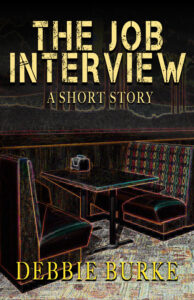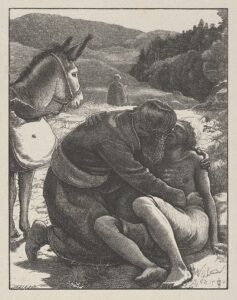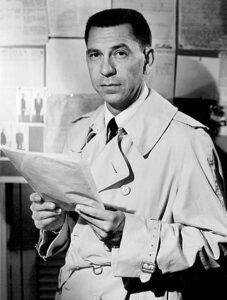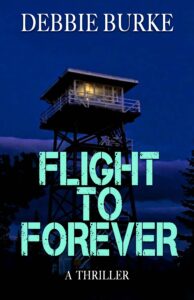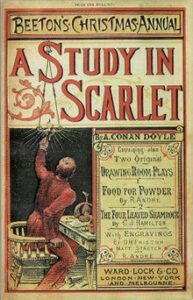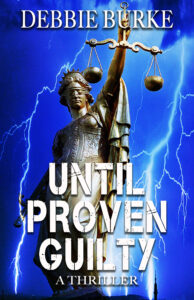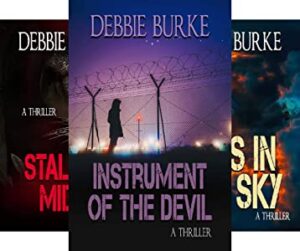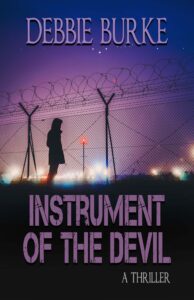by Debbie Burke
Here’s a first page from another Brave Author with the intriguing title: A New Day to Tell a Lie. Please read and we’ll discuss.
September 11, 2001, at 7:20 AM, was a pivotal moment in history. Nineteen men boarded Flights 11, 175, 77, and 93, setting in motion a series of events that would change the world and the people in it forever.
Roman Stark strolls through the beautiful, original brass and glass doors of 890 Park Avenue, located in the elegant Upper East Side. As he steps into the bright morning of a New York City day, he feels the city’s vibrant energy wrap around him, reminding him of that hopeful saying, ‘If you can make it here, you can make it anywhere’—a comforting thought he really needs today.
As he enjoys the morning sun, his thoughts drift back to that surprising moment a month ago when Elle slapped him. Their relationship, much like others he’s experienced, is a complicated blend of surprises and discoveries. He saw a side of her he had never encountered before, and he now grasped what her father alluded to when he suggested that a certain kind of ‘crazy’ was part of her mother’s lineage.
Roman made a significant life-altering change by leaving the beautiful home he once shared with his wife in Upper Montclair, New Jersey. He moved to a spacious six-bedroom co-op owned by his uncle, located just 18 miles away in ‘the city.’ Uncle Elliot’s tall and charming nephew always radiated confidence and charm during his visits, and he had been his uncle’s sole guest for several years. Imagine them enjoying brandy by the warm fire in the study, with Roman attentively listening to his uncle’s lengthy tales following delightful late-night dinners. His commitment and patience truly paid off as he received the keys to the apartment, along with an unused parking space in the garage. Most importantly, he accomplished his primary objective: obtaining a substantial amount to launch his exciting new venture, Stark Air.
When his uncle passed away, it turned out that no one in the private, ultra-secure building could quite remember what the mysterious Elliot Draper looked like. As a result, assuming his identity became rather straightforward. During the reading of Uncle Elliot’s will, he made it clear that his nephew was to repay every single penny to his estate. It was an intriguing twist for those who ever borrowed from him, as he delighted in ‘surprising’ them with unexpected conditions and interest in his seemingly generous gifts. In a surprising turn of events, an 87-year-old man cleverly outsmarted him, adding this latest disappointment to the long list of emotional and financial challenges that Roman already had to face.
~~~
Brave Author, the title caught my interest right away. It promises intrigue, deception, and secrets to be revealed, exactly the effect a title should have on a potential reader. Good job.
The first paragraph of detailed description of 9/11 is evidently intended to foreshadow what’s coming in the book but it didn’t work as written. Too many specifics were distracting, like the exact time and flight numbers. Additionally, the last sentence is a general statement that most people are well aware of so it doesn’t need to be spelled out.
One other problem is the lack of transition into the story. There is no hint of why 9/11 connects to a man walking out of an opulent NYC building into the sunshine.
Depending on how closely 9/11 relates to the story, here’s an alternative suggestion: Delete the first paragraph and instead maybe start with something along these lines:
On the sunny morning of September 10, 2001, Roman Stark strolls through the doors of….
That could establish a date that readers understand—the last day of normalcy before the catastrophic attack. But that may not be relevant to your story.
The initial paragraph introduces the main character and is told from his point of view (POV). It establishes location, weather, a possible theme, and ends with a good teaser “—a comforting thought he really needs today.” So far so good.
Then the rest of the page turns into a confusing backstory dump describing a disjointed string of events that jump back and forth in time.
A sunny NYC morning with musings about broken relationships, including a provocative statement by an apparent former father-in-law.
Then Roman’s life-changing move out of a home and marriage into a spacious apartment his uncle owns, then a point-of-view break where the narrator describes Roman, then a jump several years farther back in time, then another intrusion by the narrator who directly addresses the reader: “Imagine them enjoying brandy by the warm fire in the study, with Roman attentively listening to his uncle’s lengthy tales following delightful late-night dinners.”
Finally, a hint that Roman has charmed and probably conned the uncle into giving him the apartment, a parking space, and apparently seed money to launch Stark Air.
I may be really stretching here but does his airline business somehow relate to 9/11?
Roman’s goals are achieved but, at this point, it isn’t clear if Roman has apartment keys and is living there while the uncle is still alive.
Another jump back in time to when the uncle dies.
I’m further confused about when Roman actually moves in and when he assumes his uncle’s identity. Since the neighbors haven’t seen the uncle in years, that’s a cool development that makes the reader curious. But needs to be explained more clearly.
But then there’s another time jump to the reading of the uncle’s will that contains a big surprise for Roman. He’s supposed to pay back what appeared to be his inheritance. Apparently in the past (another time jump) the uncle had a pattern of giving gifts to other people but then surprising them by expecting repayment.
Now I’m totally confused. Was the apartment a gift before the uncle’s death? Was Roman posing as the uncle while the uncle was still alive? Or after death when the estate is being settled? Does the impersonation happen because Roman learns about unexpected debt from the will? Who’s the beneficiary of the estate?
If Roman is passing himself off as the uncle after the reading of the will, isn’t the actual beneficiary going to catch on pretty fast?
Notice the italics of apparent and appeared numerous times. That’s because I had to draw conclusions from events and actions that weren’t clearly connected.
Brave Author, the concept has a lot of promise. The main character appears to be a sleazy opportunist with unrealistic dreams who’s stunned when he must repay what he believed was a gift. And he’s impersonating a dead man. The situation is rich with potential complications.
But the confusing explanation of events during his morning walk indicates a serious problem with where the story starts.
There’s also inconsistency in the style. Sometimes it’s present tense, sometimes past. Sometimes the POV appears to be Roman’s. Other times there’s authorial intrusion. His disjointed thoughts swing from hopeful elation to irrelevant philosophizing to satisfaction with his own cunning to shock that his 87-year-old uncle outfoxed him to realization of his personal and financial problems. All this happens while he’s cheerfully strolling in the sunshine, deluding himself into thinking he can be a success in NYC.
Try taking a step back and ask yourself two questions:
WHAT info does the reader need to know?
WHEN do they need to know it?
Does the reader need a detailed description of 9/11 at the very beginning? Probably not.
Does the reader need to know Roman has problems and needs to give himself a pep talk? Yes.
How about that his wife slapped him a month ago? Probably yes since that caused him to move out of their home.
His musings of other past relationships that apparently failed, as well as the comments by his (presumably former) father-in-law about the mother’s “craziness” passed down to the daughter? Not needed at this point.
Does the reader need to know he moved into his uncle’s luxury apartment? Yes.
Big unanswered question: is the uncle alive or dead at this point?
Specific descriptive details about Roman’s former home? Not needed now.
The relationship with the wealthy but socially isolated uncle and his age (87)? Definitely needed.
The apparent grooming Roman does over several years to ingratiate himself with the uncle? Definitely, but delete the “Imagine” authorial intrusion. Save details like cozy fire and late dinners for later.
Roman’s goals to inherit a luxury apartment and seed money to start Stark Air? Definitely needed.
The apparent achievement of those goals? Yes.
The nasty surprise that the uncle’s “gifts” are in fact loans? Oh yes!
What about the backstory that uncle has apparently misled other people with “gifts” that have strings attached? Probably not now but necessary later.
Several other big questions that need to be answered: How did the uncle die? Natural causes? If he died at home, presumably neighbors who hadn’t seen him in years would have noticed his body being removed. If so, how does Roman pull off the impersonation?
The impersonation of the uncle? Absolutely needed but clarify the timeline. Does this happen before or after Roman learns he’s in debt?
After answering the questions, clarifying the timeline, and deleting unnecessary clutter, where should the story start?
Unless Roman is about to walk into the 9/11 explosions, I don’t think a sunny stroll while musing about the past is a good beginning.
One alternative idea: What if you introduce Roman by summarizing the past few years that he’s spent grooming his wealthy, socially isolated, 87-year-old Uncle Elliot? Roman’s goals are to inherit the luxury NYC apartment and obtain funds for his dream of starting the Stark Air business. When Uncle Elliot dies, Roman is feeling confident about his future as he’s sitting in the attorney’s office for the reading of the will.
Then the attorney drops the bomb. What Roman believed was his inheritance are actually loans that need to be repaid. And that someone else is the beneficiary of the estate. Or there are other daunting conditions Roman must meet to become the beneficiary. Or whatever other complications you can think of to turn his dreams into disaster.
How can he solve the immediate problem?
He decides to impersonate his uncle and live in the apartment. Meanwhile, though, he must figure out a plan to start a new day to tell a lie.
Thanks for submitting this page, Brave Author. With some clarification and rearrangement, you should have a compelling novel of intrigue.
~~~
TKZers, do you have suggestions for the Brave Author? Please share in the comments.
~~~
The Villain’s Journey – How to Create Villains Readers Love to Hate by Debbie Burke will be published July 13, 2025.
Preorder now at this link.


 Please visit
Please visit 